



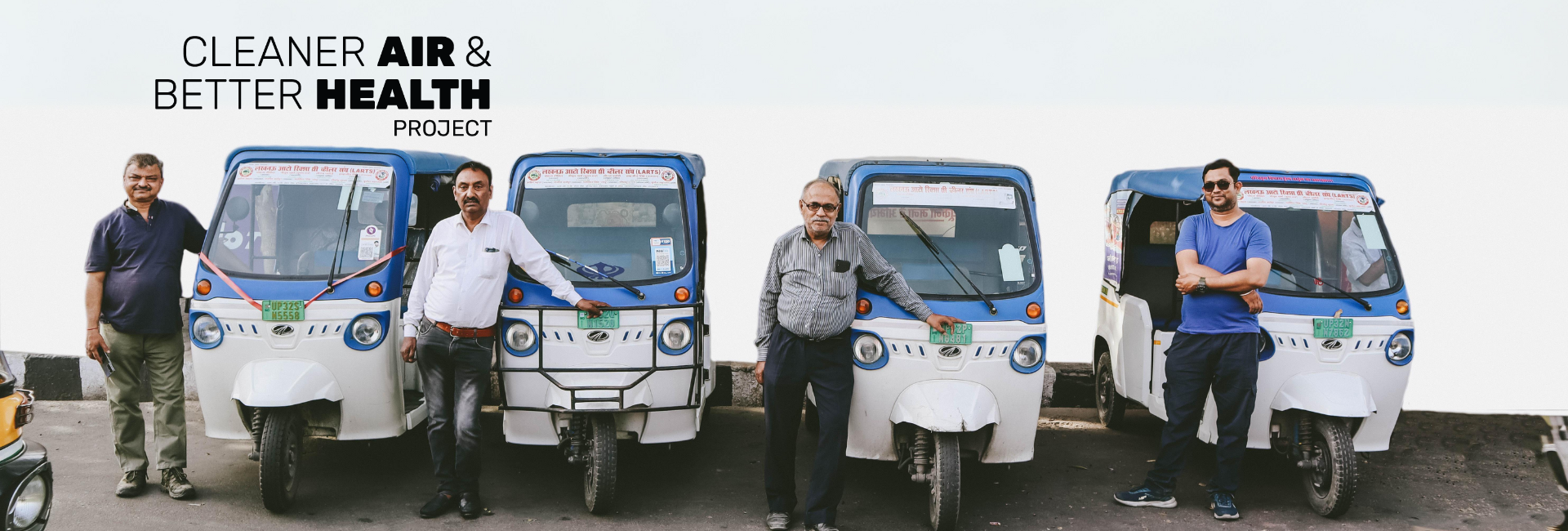
The theory of change for CABH project is that IF air pollution mitigation systems are strengthened AND IF air pollution exposure is reduced THEN the environment would be cleaner and the population healthier. However, at the core, our theory also focuses on enhancing the awareness and lived experience of communities facing poor air quality, with the aim to increase accountability of regulators and polluters and equally affect behaviour change in the choices that individuals make that increase or decrease their own contribution to air pollution.
Strengthening of air pollution mitigation in India will be contingent on the effectiveness of the regulatory regime in the country, capacity of the decision makers dealing with air quality challenges, understanding of available solutions for cleaning up polluting sectors and finally, consistent demand for clean air from informed citizen collectives. Improved air pollution mitigation supported by increased awareness of the impact of local air quality on public health, improved understanding of relationship between outdoor and indoor air quality and change in people’s behaviours towards air pollution will help reduce exposure to pollution.
The National Clean Air Programme (NCAP) launched by the Ministry of Environment, Forest and Climate Change in January 2019 is a national response to improve air quality in India. NCAP identified and targeted air quality improvement in 131 non-aligned cities (NAC) that did not meet the national ambient air quality standards (NAAQS) between 2011 and 2015. Its emphasis is on comprehensive mitigation actions beyond the NACs to also include transboundary pollution sources. NCAP has set an ambitious target – 40 per cent reduction in particulate matter (PM) by 2026. By providing an overarching national framework, the NCAP has given an impetus to air quality action across the country.
CABH’s strategic approach is to create evidence-based, result-oriented solutions for air quality management. It aims to build a community of practice to implement the solutions at scale for accelerating particulate matter reduction in India.
The project is fronting several interventions across sectors in multiple geographies to:
Enable monitoring and regulatory reforms and promote innovations in managing emissions (household and ambient air pollution)
Enhance use and integration of data by creating new evidence to map source contributions, especially to inform health and policy-relevant assessments
Elevate transitions to clean fuel consumption through interventions to reduce emissions at source across sectors (transport, industry, construction, households)
Equip institutions and build capacity of decision-makers to use evidence-based approaches to AQM
Empower citizens by mainstreaming AQ issue among communities and health practitioners who lack awareness and agency to take preventive action

reduction in criteria emissions from 150 units in an MSME cluster

reduction in particulate matter at a pilot construction dust management site

SPCBs with improved capacities for implementation of legal and judicial decisions

of the households sustain use of clean cooking fuel

new electric vehicles deployed leading to reduction of 6.2 tonnes of PM 2.5 and 471.4 tonnes of NOx

active clean air action hubs established in non-attainment cities to empower communities

sentinel surveillance sites strengthened for reporting disease data attributed to poor AQ

buildings with solutions and strategies for design and retrofit for improved indoor air quality

The United States Agency for International Development (USAID) is the US government’s premier international development agency and a catalytic actor driving development results across the world. USAID works to help lift lives, build communities, and advance democracy. Its work advances US national security and economic prosperity, demonstrates American generosity, and helps countries with their development journey. In India, USAID is collaborating with the country’s growing human and financial resources through partnerships that catalyse innovation and entrepreneurship to solve critical local and global development challenges.
USAID’s air quality programming aims to mitigate and reduce ambient and household air pollution to reduce adverse health impacts, advance climate change mitigation and adaptation, and promote inclusive, sustainable development. It is supporting the Cleaner Air and Better Health (CABH) project to enable and frame policies and programmes to match the needs of target populations, with a focus on gender inclusion.
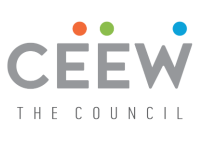
The Council on Energy, Environment and Water is one of Asia’s leading not-for-profit policy research institutions and among the world’s top climate think tanks. The Council uses data, integrated analysis, and strategic outreach to explain - and change - the use, reuse, and misuse of resources. CEEW is the lead organisation focusing on emissions mitigation, market-based approaches, and nudge experiments.
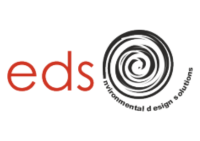
Environmental Design Solutions has a wide range of experience in the design, development, and implementation of large-scale programmes both in terms of project investments as well as bundled initiatives for energy efficiency and climate change measures. EDS focuses on reducing exposure through indoor air quality (IAQ) solutions.

Asar Social Impact Advisors created the National Clean Air Collective in 2017 to get organisations, individuals, and groups working on air pollution to collaborate, complement each other's work, and to align on strategy. Asar leads on empowering communities through outreach and awareness initiatives.
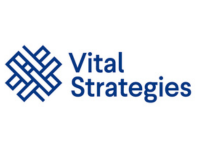
Vital Strategies has programmes spanning 70 countries, and has worked with the government of India – the Ministry of Health and Family Welfare, and the Ministry of Environment, Forest and Climate Change, with local advocates for clean air, and with clinicians to promote clean air and health benefits of scaling clean household energy. Vital Strategies focuses on minimising exposure and health impact from air pollution through health data collection and engagement with the health sector.
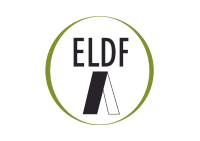
Enviro-Legal Defence Firm is India’s first environmental law firm, and has dealt with multiple landmark environmental cases that have shaped the course of air quality management across India. ELDF has experience on legal and policy dimensions of air pollution including judicial precedents and leads the CABH project in identifying regulatory reforms, developing a comprehensive legal structure to support pollution control boards.
Project Management Specialist (Environment)
United States Agency for International Development (USAID)
Senior Communications Specialist, CABH Project
Council on Energy, Environment and Water